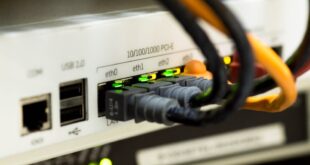Don’t believe that a virus could ever harm your computer? Think again! Viruses have been known to cause unimaginable damage, from stolen information to complete system crashes. To avoid falling victim, take preventive measures now and educate yourself on possible threats by reading about commonly found viruses like the three listed below.
Disastrous Computer Infections
Your computers and networks are under constant threat from various types of infections. Here is a quick rundown of the most common ones:
- Computer viruses are malicious programs that attack your system and can replicate through shared links, downloads, or hacked sites and infect multiple other devices. Take precautions against infection with proper antivirus defenses.
- Worms spread through computer networks without human intervention. Keep your system and network security up-to-date to prevent worm attacks.
- Adware, spyware, and ransomware can monitor and exploit your internet activity, steal personal data, or demand ransom after holding your data hostage. You can mitigate these threats by understanding how they work and taking steps to protect yourself while browsing online.
Security breaches are becoming increasingly common and more damaging than ever before. You could be researching top PayPal programs one minute, and the next moment, your computer crashes. So, protect your digital privacy by downloading reliable antivirus protection and other necessary security software on all devices containing sensitive information. Here are the most dangerous computer viruses you should know.
Clop Ransomware
The Clop ransomware is a dangerous malware that encrypts your files and demands a ransom. This virus belongs to the Cryptomix ransomware family, targets unprotected systems, and encrypts saved files, thereby preventing victims from accessing their data.
It is a dangerous malware that can affect most Windows operating systems. This ransomware primarily targets institutions and enterprises for financial profit. The Clop ransomware can enter your system through several methods, such as spam email attachments, trojans, hyperlinks, unprotected Remote Desktop Protocol (RDP) connections, infected websites, and pornographic websites. Invest in regular backups and store them on a remote server or unplugged storage devices.
Also, be careful while browsing the internet, and download applications only from official sources. Using pirated software is considered a cybercrime, and you risk infecting your devices with malware.
Zeus GameOver
The Zeus malware family first came about in 2005, and GameOver Zeus is an advanced version with a ransomware component in addition to the original Zeus financial account-stealing element. GameOver Zeus waits for users to access their bank account through their browser, injects scripts to trick them into divulging their banking information, and steals session IDs.
The goal is to extract money from victims using a large botnet that works together to steal bank information or automatically transfer funds from the victim’s online bank account to the attacker’s.
To prevent Zeus malware, you can use proxies and a robust firewall. But these might block legitimate traffic and cause downtime. Anti-malware specifically designed to stop Zeus and other sophisticated malware is necessary. Combining these measures helps reduce the risk of a Zeus infection.
RaaS
This business model allows ransomware operators and their affiliates full-featured kits replete with advanced capabilities, such as support systems or user testimonials that mirror those of legitimate software programs. In addition, certain premier providers of this service have implemented portals. These allow customers exclusive access to track data about their launched attacks and give them visibility into trends across multiple organizations. The model is successful, displayed by significant revenue growth seen last year, which peaked at approximately $20 billion.
- Hive targeted Microsoft Exchange Server customers and was disrupted by the Department of Justice in January 2023.
- DarkSide focused on Windows machines but recently expanded to Linux and was involved in the Colonial Pipeline incident.
- REvil was behind one of the biggest ransom demands on record, and their group PINCHY SPIDER took a 40% cut of the profits.
- Dharma has been around since 2016 and has launched many RDP attacks, demanding between one and five bitcoins from targets.
- LockBit has been causing trouble since September 2019 and is available as a RaaS, with affiliates threatening to leak data if they do not receive a ransom.
For optimal defense against RaaS attacks, prioritize advanced endpoint protection software capable of detecting even the most sophisticated malicious codes. Also, create frequent data backups at irregular intervals using different devices stored in multiple offsite sites for security purposes while periodically evaluating these backup files’ integrity levels for continual improvement. Furthermore, you should apply patches as soon as possible since missing even one critical update exposes your system to cybersecurity threats.
Conclusion
How do you prevent cyber criminals from compromising sensitive data? Relying solely on antivirus software will leave you vulnerable. A combination of a secure infrastructure, anti-malware, and antivirus software can reduce the risk of data leaks. Take security concerns seriously, especially if you use your systems for corporate communications or to work remotely.
 Being Human
Being Human




